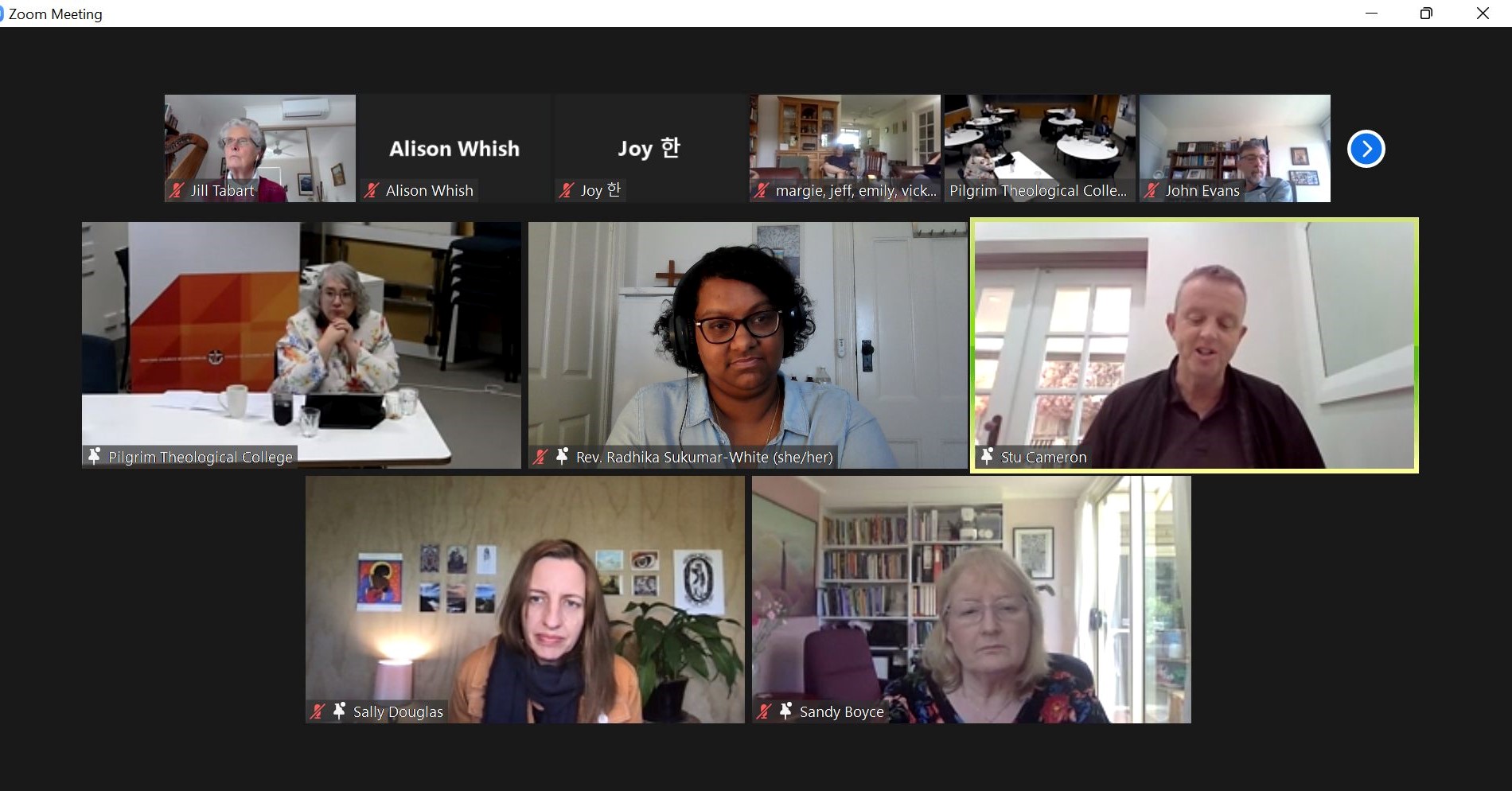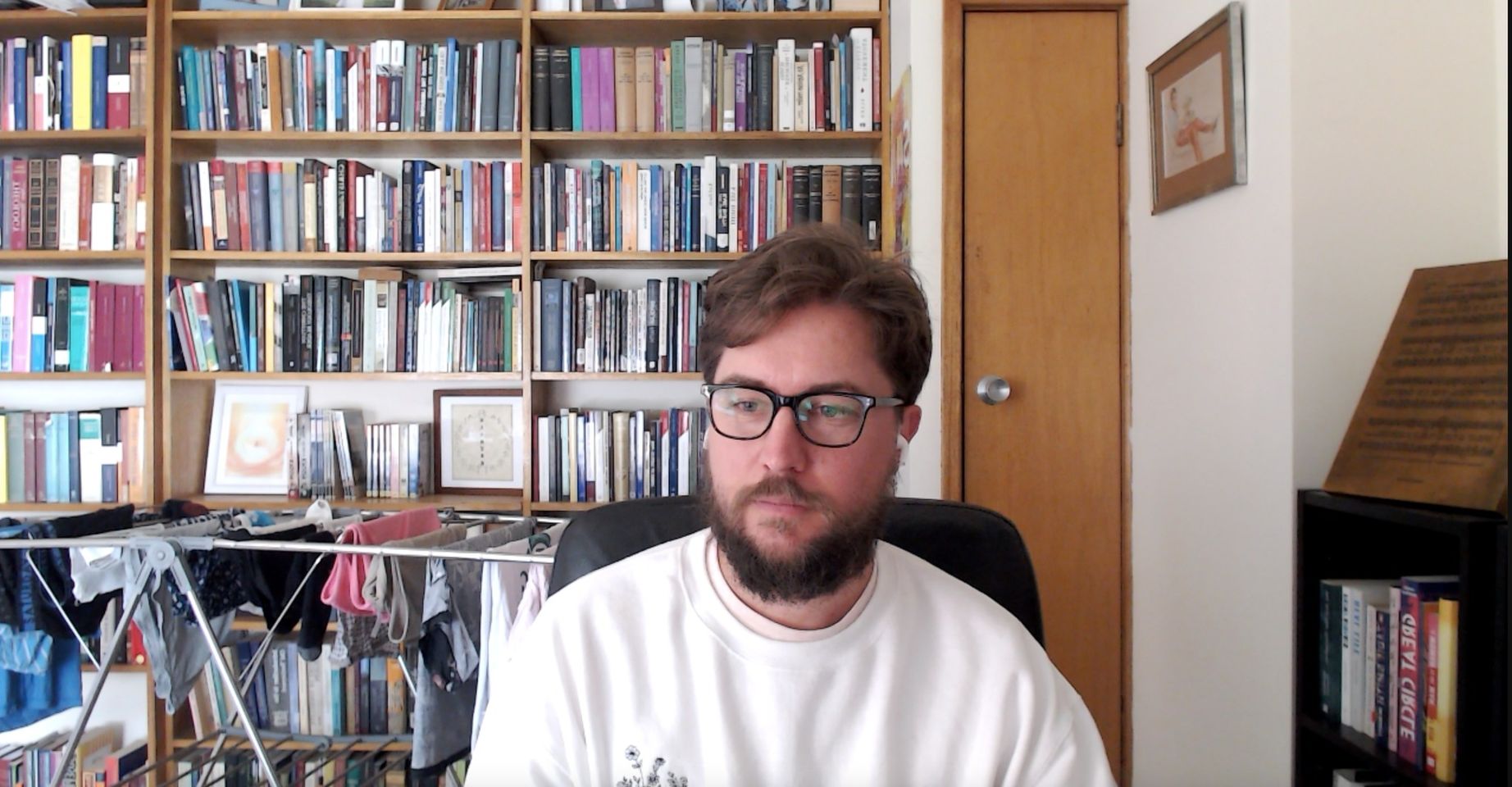Reflecting on the Basis at 50
Written by Bethany Broadstock
It is now 50 years since the founding document of the Uniting Church, the Basis of Union, was published in its final form.
Almost 70 people from across the national UCA gathered online for a day conference hosted by Pilgrim Theological College in the Synod of Victoria and Tasmania and chaired by Uniting Church President Rev Sharon Hollis to mark this milestone and reflect on ‘the Basis at 50’.
It is one of many conversations about the Basis taking place across the country as the Uniting Church discerns its future under the Act2 project.
“Although prompted by a significant milestone, the focus of this conference was not on the past but on the present and future of the Basis of Union,” said Rev Hollis. “It returned to that ever-new question of how the Basis continues to guide and prompt our life as a Church, as it is brought into conversation with key questions of our time.”
A series of panels, plenaries and electives explored theological insights gained from translating the Basis into other languages, its reception by the UCA’s multicultural communities and emerging generations, and its relation to contemporary practices of mission, ministry and public theology.
A defining aspect of the conference was that it gave voice to post-union generations and allowed fresh theological and cross-cultural engagement.
Conference organiser and Uniting Church theologian Rev Dr Geoff Thompson said the conference was distinctive from earlier conferences in its focus not on history, but on the insights and critiques which arise from contemporary engagement with the Basis.
“Two earlier conferences in the 2010s focused mostly on interpreting the Basis, restating its claims, and recalling its history. Most of the presenters at those conferences were established UCA academics, UCA leaders, and even one of the document’s authors. There was a heavy bias towards white and male presenters.
“The presenters at this conference were a rich mix of young adults, leaders of CALD communities, several younger emerging theologians, congregational ministers and lay members of the UCA, including several lay theologians.”
“My guess is that 75% of the conference participants were younger than the Basis.”
One of the highlights of the conference were two formal papers from Rev Liam Miller and Joy Han, both from the Synod of NSW/ACT, which reflected on the Basis from ‘millennial’ perspectives and saw traditional readings challenged and disrupted.
“I was struck by the enthusiasm for engaging the document (and by no means uncritically) shown by some of our young adult members. At the heart of their presentations was not the binary question of whether the Basis is relevant or not, but rather what we learn from it by putting contemporary critical questions to it."
Other sessions were led by Maratja Dhamarrandji and Michelle Cook from Nungalinya Theological College, Assembly Theologian in Residence Rev Dr Ji Zhang, and Assembly National Consultant and President-Elect Rev Charissa Suli.
Rev Dr Thompson said the conference confirmed the ongoing vitality of the Basis in the life of the Uniting Church as it is engaged with in each time and place.
“The theological vision of the Basis of Union resists being easily pigeonholed. It creates theological spaces for exploration, retrieval and fresh witness. In my view, we miss its significance when we treat it (either to champion it or resist it) as a prescriptive document.”
“It is, instead, a permission giving document that continually invites us to take our place in the spaces it opens up between the confession of Jesus’ lordship and the many forms of discipleship and church which that confession can take.”
Rev Dr Geoff Thompson is the author of Our Life Together: Reflections on the Basis of Union, a new series of studies released in the current phase of the Act2 Project. Act2 is the biggest whole-of-Church conversation we have had since Union about the shape, identity and future of the Uniting Church. UCA communities are invited to take up the series to explore together what a faithful future might look like in light of our theological identity and tradition.





